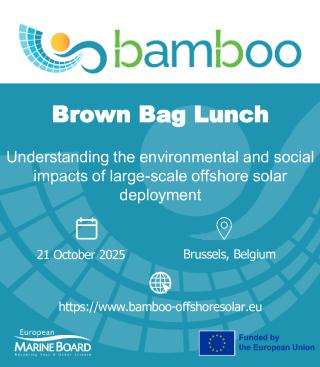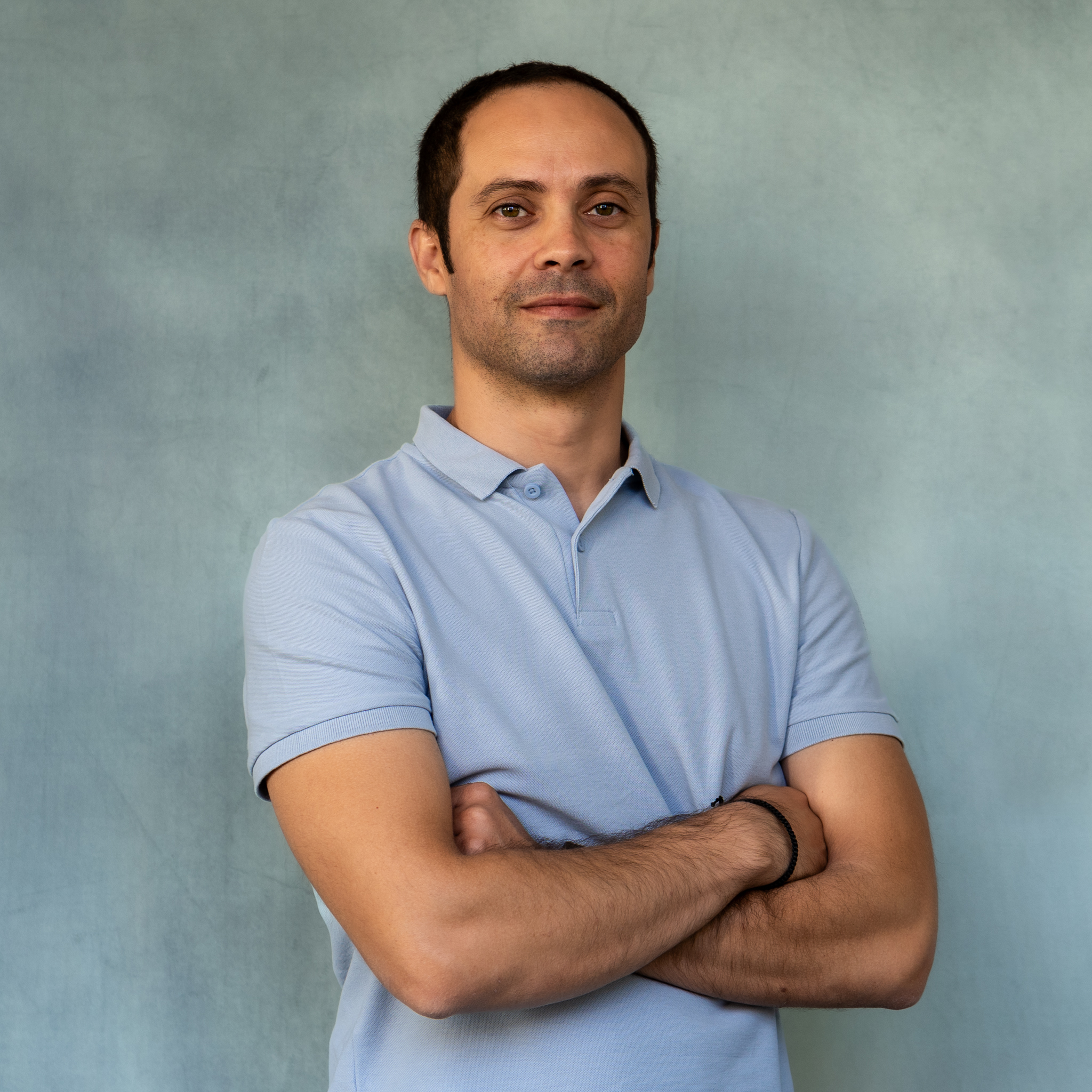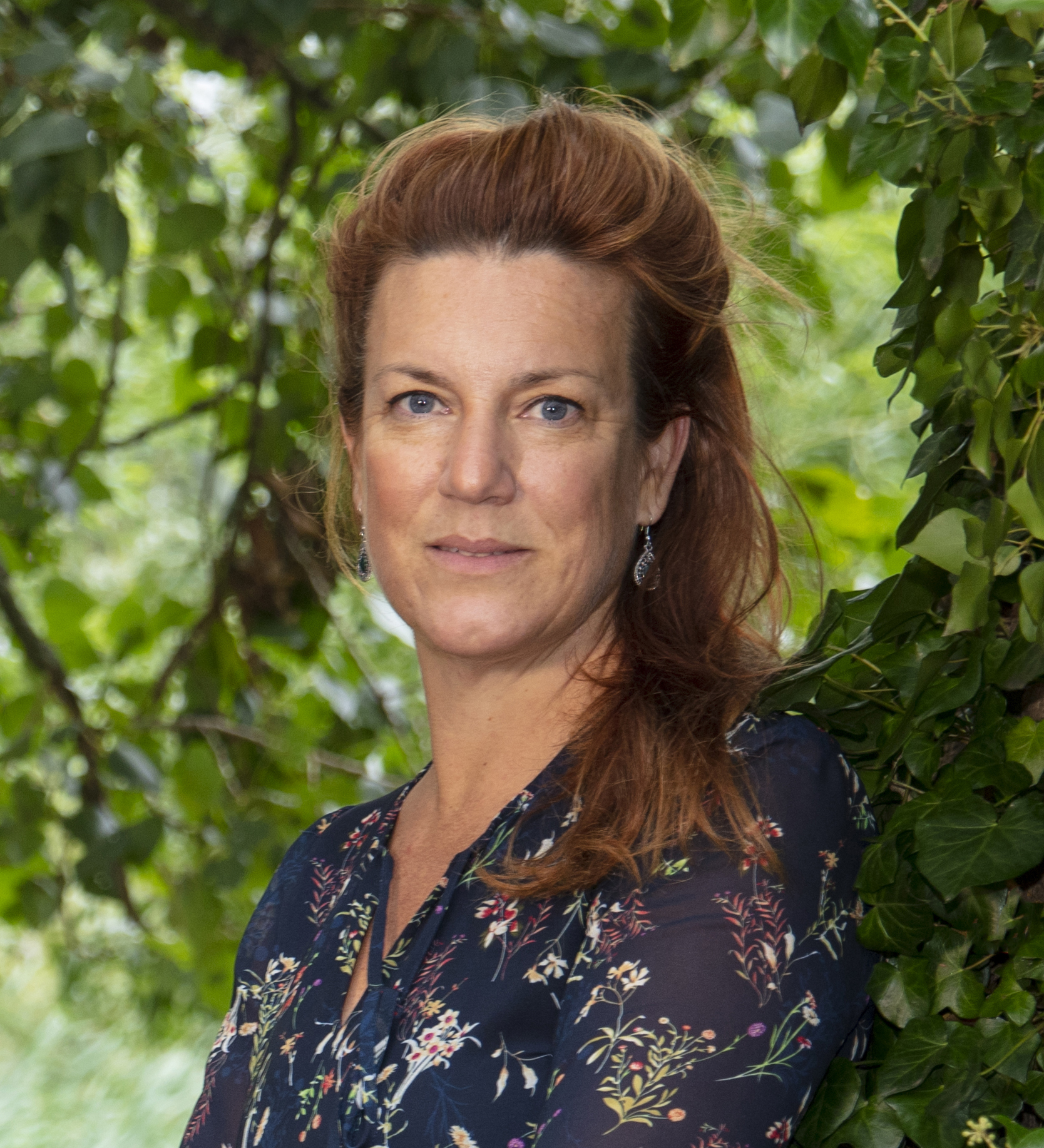
To meet the EU decarbonisation targets and the ambitions of the EU Offshore Renewable Energy Strategy, vast amounts of space are needed for renewable energy production. With increasing competition for land due to housing, industry, agriculture, and nature conservation, our attention turns to the ocean. The EU-funded project BAMBOO (Build scAled Modular Bamboo-inspired Offshore sOlar systems), running from 2024 to 2026 and of which EMB is a partner, is developing a blueprint for large-scale (>1km2) offshore solar systems. These systems are designed to be deployed in the space between turbines within utility-scale offshore wind farms.
While we walk this promising path, it is essential to understand both the potential positive and negative environmental and societal impacts of implementing these systems – and how we can mitigate risks while maximising opportunities.
In April 2025, EMB hosted an expert workshop to discuss these topics in the scope of the BAMBOO Project. During this Brown Bag lunch, the key messages and outcomes of that workshop will be presented through two expert presentations, followed by an interactive discussion with key stakeholders.
This Brown Bag Lunch was an in-person event, with the possibility to watch the presentations on livestream. Participation was free of charge and lunch was provided.
📍 NH Hotel Berlaymont, Bd Charlemagne 11/19, 1000 Brussels
📅 Tuesday 21 October 2025, 11:30 – 14:30 CEST
Programme:
🍴 11:30 - 12:30 CEST: Lunch (in-person only)
💬 12:30 - 12:35 CEST: Opening welcome
🎥12:35 - 12:50 CEST: Presentation on potential natural impacts and benefits, Dr Pedro Vinagre (WavEC, Portugal)
🎥 12:50 – 13:05 CEST: Presentation on potential social impacts and benefits, Dr Gerdien de Vries (TU Delft, Netherlands)
💬 13:05 - 14:25 CEST: Interactive discussion (in-person only)
💬 14:25 - 14:30 CEST: Closing words
You can re-watch the presentations here and find a copy of the combined presentation slides here.
Meet the Speakers:

Dr Pedro Vinagre is a marine ecologist with extensive expertise in EIA and environmental monitoring, particularly in the context of offshore projects such as floating wind, wave energy, and aquaculture systems. His work spans both Portuguese and international waters, where he has been responsible for tasks ranging from scoping reports and baseline assessments to supporting regulatory permitting and stakeholder engagement. He has played a key role in the development and implementation of EIAs and monitoring programs, contributing to both national and international initiatives. Pedro is an active member of scientific expert groups such as ICES (WGORE, WGMBRED) and GESAMP (WG44), where he contributes to the advancement of best practices for sustainable marine industry development. He has several publications (peer-reviewed papers, reports, conference presentations) focusing on environmental assessments and innovative monitoring methodologies.

Dr. Gerdien de Vries is Associate Professor of Climate Psychology at Delft University of Technology. Her research examines human responses to climate change and participation in the energy transition, with a focus on how psychological insights can inform effective policy and sustainable technologies. Gerdien investigates the behaviour of all stakeholders involved in socio-technical transitions. Recognising that individuals across all roles and sectors encounter psychological barriers and motivations, her work takes a systemic and multi-actor perspective on behavioural change. Dr. de Vries is particularly renowned for her research on the "hassle factor", an often-overlooked yet significant obstacle to sustainable behaviour.